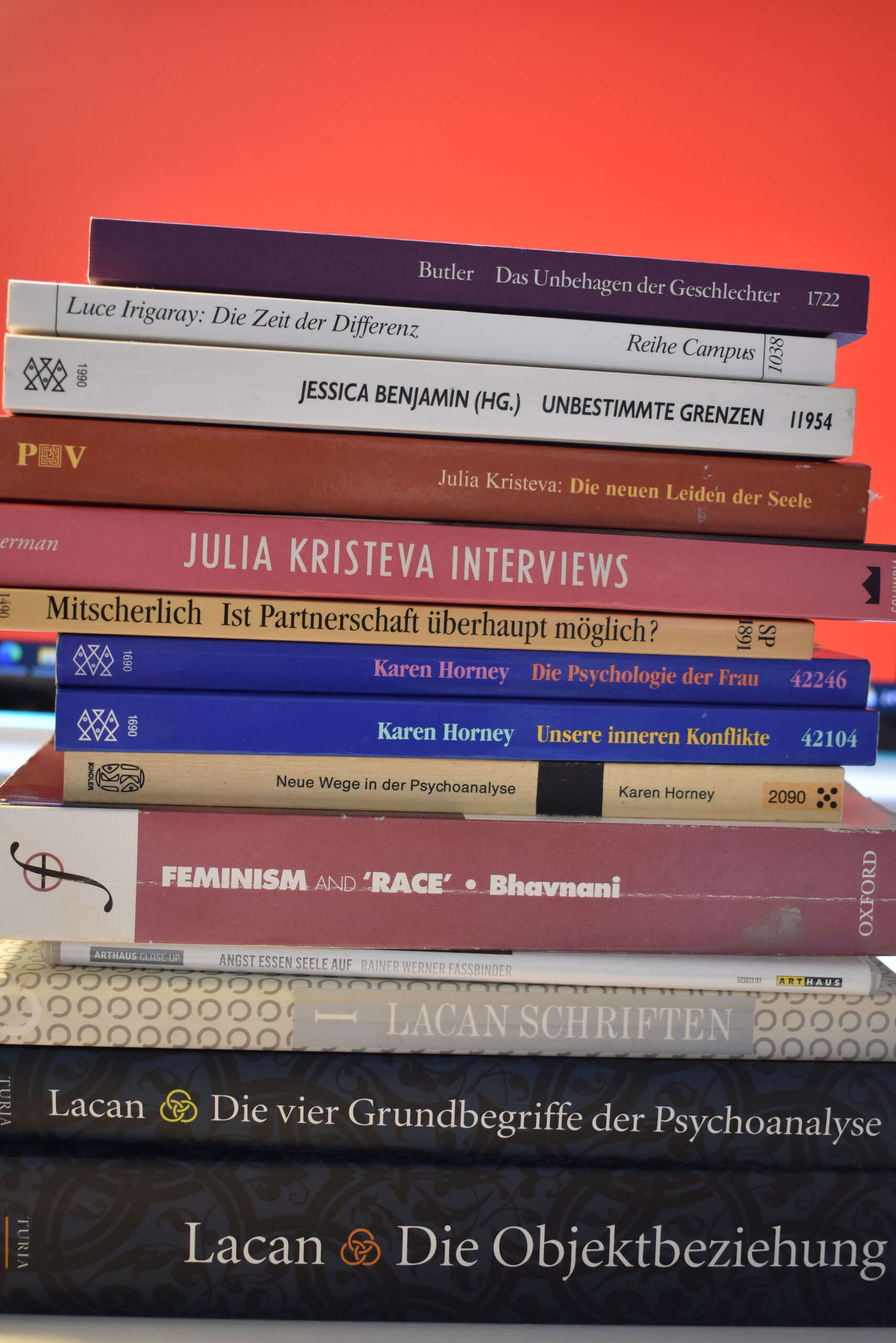Fear of the clitoris
regarding the underrepresentation of women in psychoanalytic theory
While Freud (1983[1923]) placed the concept of phallic monism at the center of his theory about the Oedipus complex and then went on to derive the castration complex from that, there were – in addition to certain critiques by feminists (e.g. Butler, 2006) as well as tentative critiques by female psychoanalysts (e.g. Karen Horney, 1984[1936]) - numerous female psychoanalysts who held onto the concept of phallic monism.
Even today women are considered as being “castrated” in contemporary psychoanalytic literature, having this particular differentiation to non-castrated men; namely, they lack the fear of being castrated. In Freud’s concept of the Urhorde (primordial horde), which he regarded as being an actual historic fact, at least one person of the male sex lies at the basis of this fear of castration, who himself was not castrated. This father of the Urhorde (primordial horde) was overthrown and yet all of his descendants have been anxious about losing their own genitalia, since the jealous father castrates.
This is a fate that does not haunt women, since women after all have no need to fear being castrated -or so one would be inclined to think. But who gets castrated in reality? Without exception it is women. In archaic patriarchal societies, it is women who end up getting castrated, as is the case still today in certain African countries. The pleasure yielding clitoris gets removed or is mutilated, as the case may be, thus depriving these women of their ability to derive pleasure from the sexual act. The fear is simply too great that a woman might become pregnant from a stranger and that, furthermore, her husband might end up having to raise that very child.
Even in patriarchal societies, in which this martial-bodily form of castration does not occur, women are more severely controlled and policed. Restrictions are placed upon them, constraining their movements and actions within society, so as to avoid the situation in which a love child ends up getting smuggled into the family.
When it comes to men, adultery is considered just a trivial offense yet women are penalized much more severely. The freedoms that men grant themselves do not apply to women to the same extent. Now, all of this is nothing new of course but why is it that "enlightened" theorists, both men and women, continue to lend support to this misogynistic system? Is it the fear of losing power? Much has already been written about this so I won’t dwell on the topic.
I am more interested in those theorists, regardless of their gender, who postulate equality but who, upon closer inspection, create a construct by reversing the signs of phallic monism, thus adopting the misogynistic narrative. Are we allowed to ask why everything seems to revolve around the penis? Couldn't developmental psychological phases also have been derived from the clitoris?

Apparently, the clitoris is just too uninteresting. Women as objects of desire, as sexual objects, become significant in analytical discourses in their capacity as mothers. The "sacred" mother ends up being reduced to the nurturing breast and the clitoris is only an organ that serves no purpose. Well, I'm not exactly saying that most men don't care if a woman experiences orgasm during sexual intercourse but ultimately this issue doesn't seem to bother a lot of them.
Müler-Pozzi (2007) suggests viewing castration from Lacan’s (1991[1958]) structural perspective. Accordingly, women are not castrated but are subject to the castration complex just as men are because castration has become symbolic in both sexes and remains in the imaginary, as Freud postulated. But what follows from all of this?
According to Müller-Pozzi (2007), this way of looking at things, influenced by Lacan’s structuralism, eliminates Freud’s anthropological construction in favor of a symbolic castration that affects both sexes equally, for the denial of the mother's breast affects all infants. Only when this occurs can they turn to the world.
Lacan (2004[1962.1963]), unlike Freud, describes the renunciation not as a triangulation, that is, recognising another object between oneself and the (mother's) breast but as the renunciation of this absence. This indeed affects both sexes and yet the problem remains that women are not affected by castration to the same extent that men are because, after all, in the primordial horde it is not the mother but the father who was overthrown. Thus, women are closer to "Being" than men, while men exist and have to fear for their own existence.
Well, now it’s not men who are superior to women but the other way around because the essence of the male resides in the female. Doesn't that sound just like a castrated woman looking at a man and then realizing what she lacks?
This sounds a lot like pseudo-equality because a reversal, after all, does not mean equality and why would a woman desire to be idealised as a kind of sublime being and thus become almost unreal (cf. The Marquise of O by Heinrich von Kleist). Isn’t it high time that we come up with a theory that is oriented beyond the phallic towards the authentic characteristics of women? How about having clitoral monism to even things out?
Literature:
Butler, J. (2006). Gender Trouble: Feminism and the Subversion of Identity. Routledge.
Müller-Pozzi, H. (2007). Eine Triebtheorie für unsere Zeit. Huber.
Horney, K. (1984[1936]). Die Psychologie der Frau. Fischer.
Freud S. (1983[1923]. Die infantile Genitalorganisation. In Mitscherlich A., Richards A., Strachey J. (Hrsg.). Sigmund Freud-Studienausgabe, Bd. V: Sexualleben (S. 235–241). Fischer.
Lacan, J. (1991[1958]): Die Bedeutung des Phallus. In Lacan, J. (Hrsg.). Schriften II (S. 121–132). Quadriga Verlag.
Lacan, J. (2004[19962-63]). Le séminaire livre X: L’angoisse. Seuil.
Write comment
Your email address will not be published. Comments are published only after moderation.
Comments ()